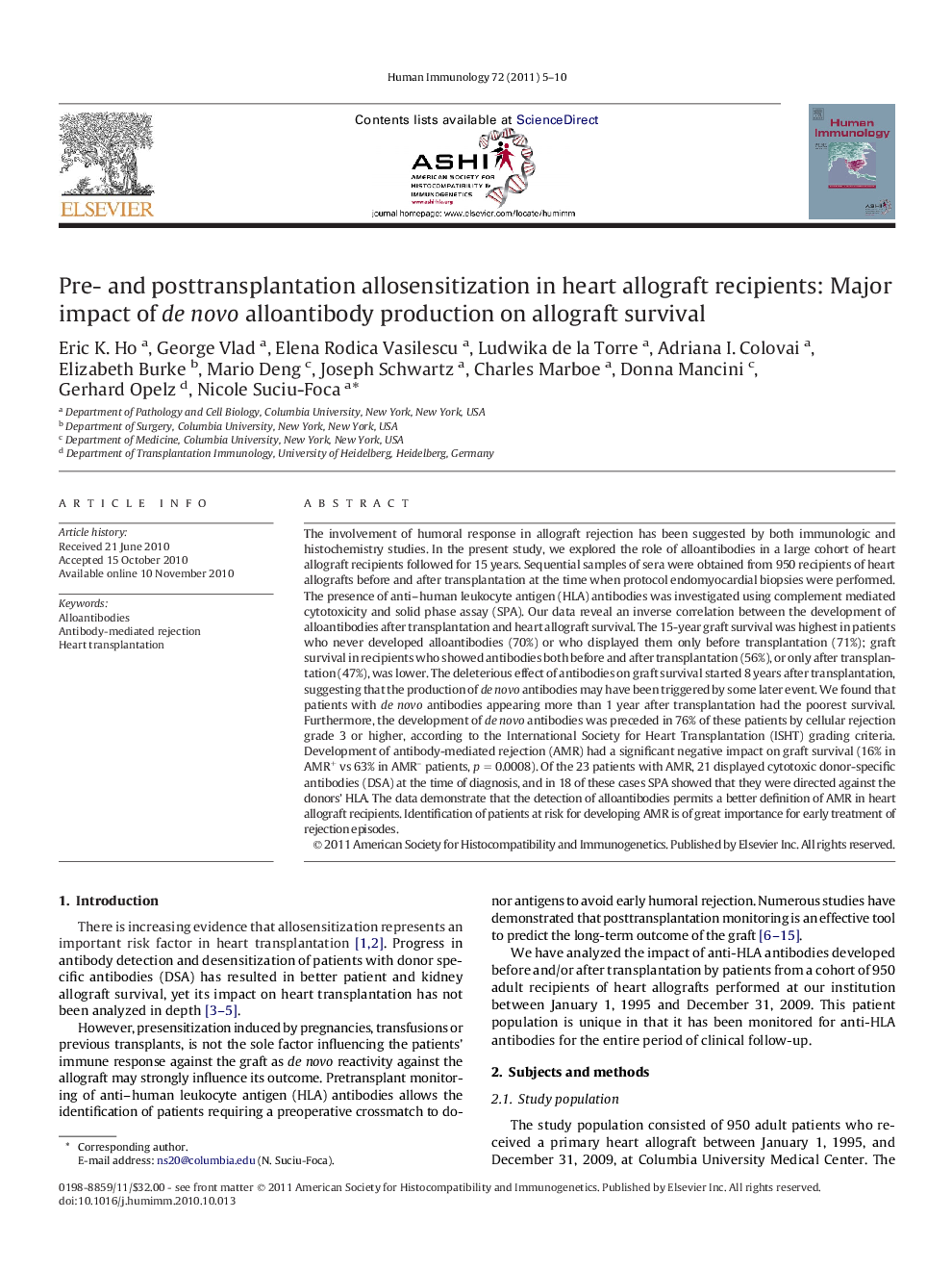| کد مقاله | کد نشریه | سال انتشار | مقاله انگلیسی | نسخه تمام متن |
|---|---|---|---|---|
| 3351976 | 1216448 | 2011 | 6 صفحه PDF | دانلود رایگان |

The involvement of humoral response in allograft rejection has been suggested by both immunologic and histochemistry studies. In the present study, we explored the role of alloantibodies in a large cohort of heart allograft recipients followed for 15 years. Sequential samples of sera were obtained from 950 recipients of heart allografts before and after transplantation at the time when protocol endomyocardial biopsies were performed. The presence of anti–human leukocyte antigen (HLA) antibodies was investigated using complement mediated cytotoxicity and solid phase assay (SPA). Our data reveal an inverse correlation between the development of alloantibodies after transplantation and heart allograft survival. The 15-year graft survival was highest in patients who never developed alloantibodies (70%) or who displayed them only before transplantation (71%); graft survival in recipients who showed antibodies both before and after transplantation (56%), or only after transplantation (47%), was lower. The deleterious effect of antibodies on graft survival started 8 years after transplantation, suggesting that the production of de novo antibodies may have been triggered by some later event. We found that patients with de novo antibodies appearing more than 1 year after transplantation had the poorest survival. Furthermore, the development of de novo antibodies was preceded in 76% of these patients by cellular rejection grade 3 or higher, according to the International Society for Heart Transplantation (ISHT) grading criteria. Development of antibody-mediated rejection (AMR) had a significant negative impact on graft survival (16% in AMR+ vs 63% in AMR– patients, p = 0.0008). Of the 23 patients with AMR, 21 displayed cytotoxic donor-specific antibodies (DSA) at the time of diagnosis, and in 18 of these cases SPA showed that they were directed against the donors' HLA. The data demonstrate that the detection of alloantibodies permits a better definition of AMR in heart allograft recipients. Identification of patients at risk for developing AMR is of great importance for early treatment of rejection episodes.
Journal: Human Immunology - Volume 72, Issue 1, January 2011, Pages 5–10